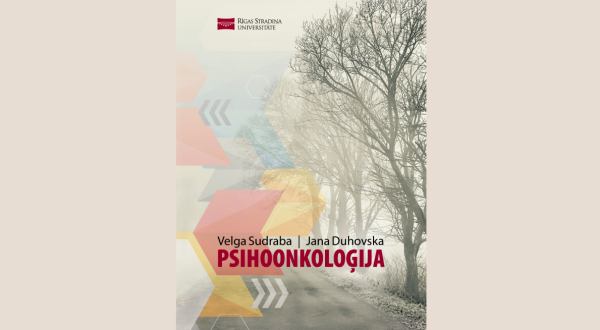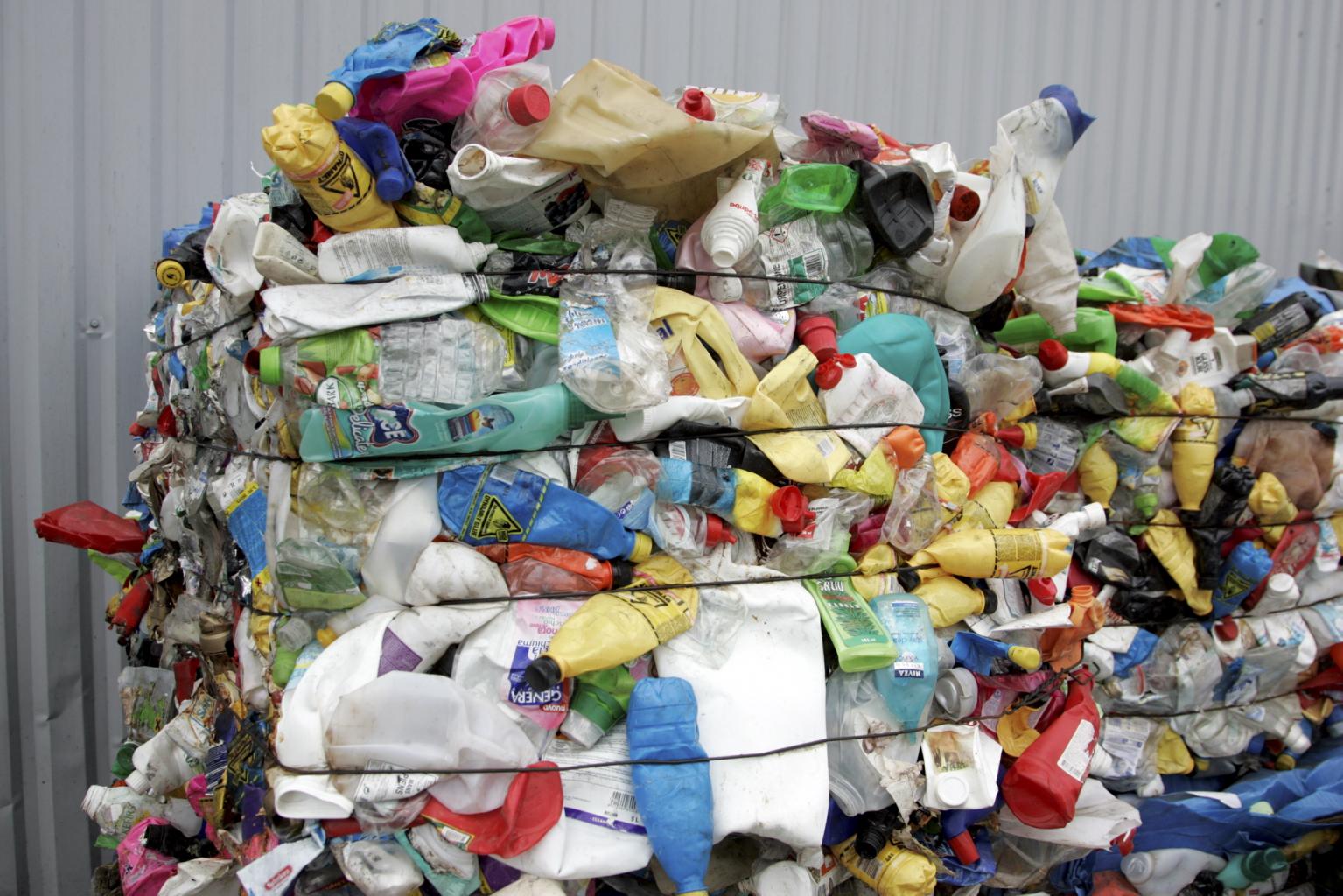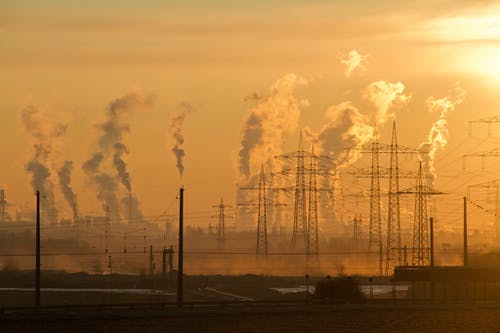RSU Researcher: Scientists Need to Get More Involved in Explaining the Effects of Climate Change
Climate change is only considered to be the most serious global problem by 6% of Latvian citizens. For obvious reasons, the spread of infectious diseases comes first, followed by the economy and armed conflicts. Scientists are, however, seen as the most reliable opinion leaders when it comes to climate change: 79% of respondents trust scientists. These are the first conclusions of a project implemented by Vineta Kleinberga, a doctoral student at Rīga Stradiņš University (RSU) and a researcher at the RSU Faculty of European Studies.
The study, led by Professor Andris Sprūds, the Dean of the Faculty of European Studies, was launched this year. It continues a study on climate change narratives in Latvia that was launched by RSU in 2020 and will continue until the end of 2023. Even the first results allow for a better understanding of the Latvian society’s views on the impact of climate change, not only on polar bears in the distant Arctic, but also on everyday life. We invited Vineta Kleinberga to find out more about these first results and what conclusions can be made.
One of the project’s most important tasks is to find out how climate change is communicated and perceived, what different social groups believe, what the prevailing narratives are and how relevant the problem of climate change is when we think about a global agenda, or our daily lives. The researcher points out that opinions differ significantly. More than a thousand Latvian citizens between the ages of 18 and 75 took part in the survey. Despite the fact that only 6% of respondents consider climate change to be the biggest global problem, 83% (i.e. almost 14 times more respondents) agree that climate change is a serious global problem. By reducing the scale, the results change: 53% of respondents view it as a serious problem in Latvia, while only 27% consider it as a problem for themselves and their family.
Kleinberga concludes that climate change is perceived as a global issue in Latvia. As soon as you bring the focus down to individuals, the problem seems to be perceived as less serious.
This can be explained by the fact that people in Latvia do not feel the real negative effects of climate change in their daily lives. Even if people do experience some effects, like record-breaking heat waves, they are not associated with climate change. Sometimes the views differ drastically. For example, some people think that climate change could even be beneficial for Latvia because the summers are getting longer and warmer. This also means that the growing season of various agricultural products extends, which can be economically advantageous for agriculture. However, this narrative demonstrates a narrow short-term understanding of the problem, as the negative effects of climate change are also being felt in our region and will only intensify if no measures will be taken.
Although a large part of society does not perceive climate change as a threat at a national or local level, people still engage in climate change-related activities.
The study shows that 42% of the people surveyed have been involved in activities that mitigate climate change within the last six months.
Among specific forms of action, recycling comes in first followed by reducing the consumption of disposable products and saving energy by purchasing new household appliances. Another interesting conclusion is that 10% of respondents have consciously not purchased some products. Scientists recommend reducing consumption and promoting circular economy to mitigate the effects of climate change.
The project does not only focus on the public perception of climate change, but also explores political, media and business narratives. The preliminary findings of the study show that despite the fact that the political narrative highlights the opportunities that the European Union's Green Deal will bring to the economy and its potential for innovation, entrepreneurs are still unclear how climate policy will affect the Latvian economy, what support mechanisms will be provided to make entrepreneurship related to emission reduction not only laudable, but also beneficial and profitable.
News regarding the climate change agenda in the Latvian media are of a more global nature and only slightly related to Latvia, the researcher admits.
For example, the UN Climate Change Conference (COP26), which took place in Glasgow at the beginning of November and brought together the leaders of around 200 countries, is basically presented as a rather distant and international event, where the leaders of the major countries spoke about and discussed the future of the planet. At the same time, there is almost no link to current issues in Latvia: how do decisions taken in Glasgow affect Latvia? What do Latvians think about these decisions and opinions? Do Latvian politicians agree with everything, or do they have ideas of their own?
On the other hand, when it comes to domestic decisions, such as a recycling, or raising the vehicle operation tax for certain less environmentally friendly vehicles, the media reflects these internal political discussions looking for what business interests and corruption there might lie behind them and climate change is sometimes not even mentioned.
This may probably be one of the reasons why 62% of respondents believe that climate change is a convenient political slogan.
Kleinberga also comments on the popular and commonly held view that Latvia is a green country, where there are almost no environmental problems, compared to industrialised Western Europe. This myth is largely based on the Environmental Index study conducted by Yale and Columbia University that was published in 2012. According to this study, Latvia ranks 2nd in the world. However, already in 2018 Latvia had dropped to 37th place.
Currently, studies show that the amount of CO2 emissions in Latvia is increasing and forests’ ability to absorb greenhouse gas emissions is decreasing.
The transport and agriculture sectors are particularly problematic for Latvia. Also in the energy sector, where Latvia is well ahead of other EU countries in the share of renewable energy in electricity production, there are a number of challenges related to the country’s dependence on imported oil and natural gas, as well as the largely exhausted potential of hydropower.
Speaking about the future, the researcher says that the project plans to achieve both scientific and practical goals. Scientific research on narratives in politics, business, media and society will continue in order to find out what these narratives are, how they overlap and where gaps arise between and within the different groups. From a practical point of view, recommendations will be developed for policy makers on how to improve the political narrative so that it gets a greater resonance in Latvian society.
According to the survey, scientists are the most reliable sources of information on climate change, but their views are rarely heard in the public space or in the media.
If Latvian scientists were to get more actively involved in developing and communicating climate change-related policies, this would help increase public awareness of the negative impact of climate change and trust in opinion leaders.
Related news
 Book on psycho-oncology: resource for studies, professional practice and patient supportPsychology, For Students, Books
Book on psycho-oncology: resource for studies, professional practice and patient supportPsychology, For Students, Books





